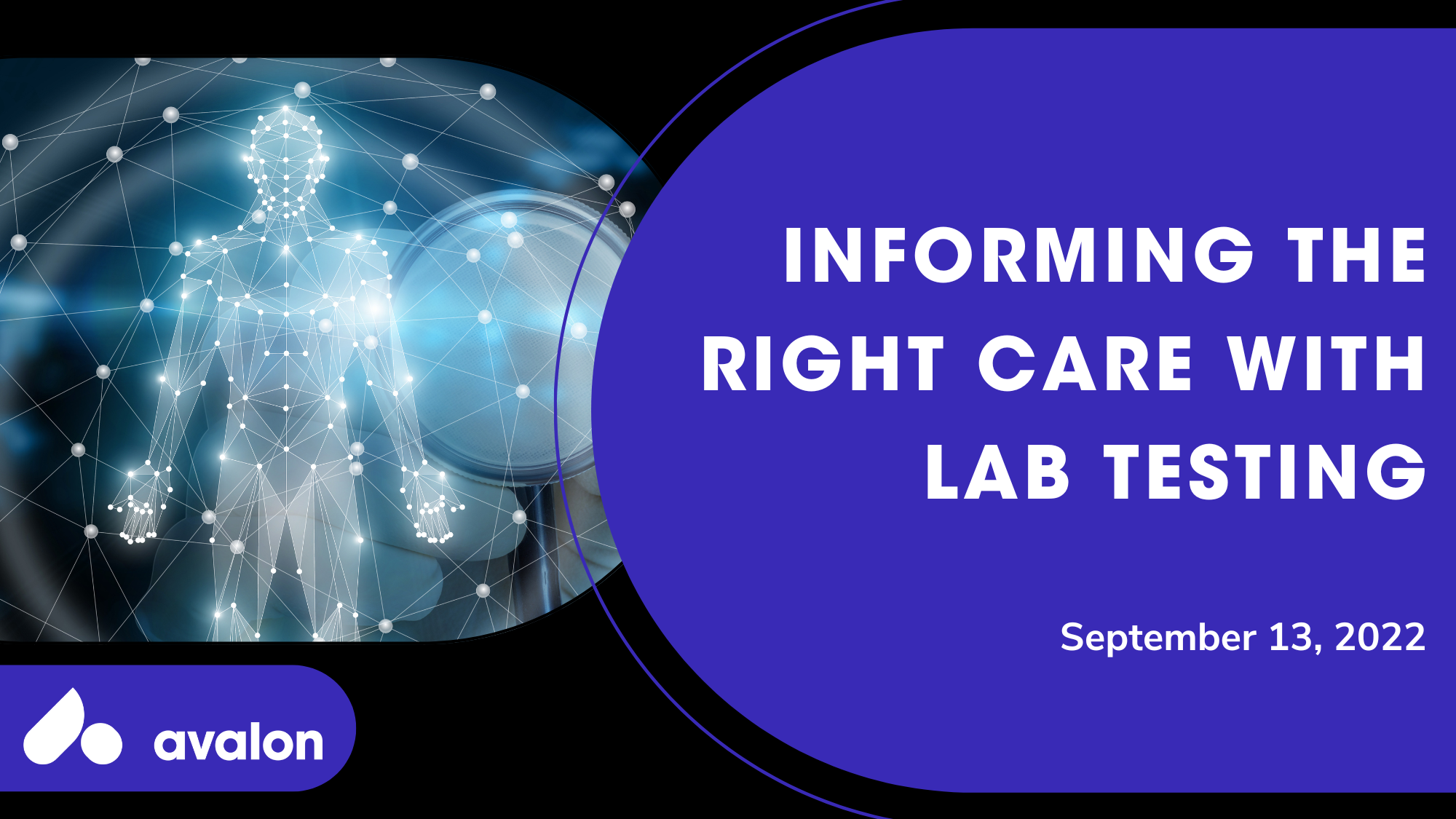
Avalon Healthcare Solutions hosted a webinar on federal policy news and laboratory trends. Julie Barnes, the Principal of Maverick Health Policy, spoke alongside Avalon’s Jason Bush, Ph.D., EVP, Product. The webinar covered:
Breaking News
- Aug. 9 – President Biden signed the CHIPS and Science Act of 2022 which provides $52 billion to boost the semiconductor sector and gives the Department of Congress the authority to designate and fund 20 regional technology and innovation hubs across the country.
- Aug. 16 – The Inflation Reduction Act of 2022 is signed into law. For the first time, the Centers for Medicare and Medicaid (CMS) will have the power to negotiate a subset of Medicare Part B and D drugs. Starting in 2024, negotiated prices will be published, and will not take effect until 2026.
New Legislation Aimed at Tackling Rising Consumer Healthcare Expenditure
Insurance marketplaces are experiencing a surge in enrollments. There are currently 14.5 million enrolled in individual health plans with 26 million uninsured—an all-time low. The Biden Administration moved swiftly to ease the financial pressures on enrollees, passing The Inflation Reduction Act. This legislation will impact health plans in several ways:
- The act will provide a three-year enhanced premium tax credit extension for ACA individual marketplace enrollees and cap premium costs at 8.5% of household income.
- Medicare drug pricing will stabilize as CMS will now have the opportunity to negotiate.
CMS Changes On The Horizon
CMS has published a roadmap to assist healthcare providers as they transition back to “normal” federal regulations that were waived during the public health emergency. With the federal government no longer footing the bill for at home testing, commercial insurers will soon be expected to foot the bill.
In August, CMS also released a request for information, seeking feedback on how to improve Medicare Advantage for stakeholders. More than 4,000 comments were filed, including those from Avalon, in response. As the only company currently producing a lab trend report, the CMS request for information provided Avalon an opportunity to speak directly to the insights we have uncovered in the annual report.
Recommendations included:
- Improving the prior authorization processes
- Making lab testing cost-effective and reducing medically unnecessary testing
- Implementing innovative coding and quality assessment techniques to incentivize value-based care
Lab Testing: Location, Location, Location
In a recent report, the Office of Inspector General (OIG) reported a surge in Medicare spending. In 2015, there were $289 million in payments and, in 2019, $1.36 billion. These costs are expected to continue to rise as price disparity in lab testing is largely impacted by where the test is performed (hospital vs independent lab). The current landscape incentivizes hospital systems to continue to acquire physician practices and absorb testing volume as the market is expected to grow to more than 10 billion by 2027.
Monkeypox: Emerging Healthcare and Testing Needs
Since the first case in May 2022, there have been 21,500 confirmed cases in the U.S. with two possible deaths attributed to the monkeypox virus. The Food and Drug Administration (FDA) issued an emergency use authorization (EUA) for Jynneos vaccines to be administered via intradermal injection to increase available doses. Antiviral treatments and vaccines developed for smallpox are being reported as effective against monkeypox and most patients recover without treatment within 2-4 weeks. (Teco virimat/Jynneos and ACAM2000) As new information is released, Avalon will continue to update policies to include monkeypox testing.
Barry Davis closed out the session by discussing President Biden’s renewed Cancer Moonshot leadership effort, a White House initiative aimed at reducing U.S. cancer fatalities by 50% over the next 25 years. He also discussed the importance of Z-Code specificity in lab testing and its potential impact on lab science across all fields. With 1 in 3 tests being ordered incorrectly, Z-Code, MolDX, and DX registry preliminary assessment programs directly address this problem in genetic testing.



